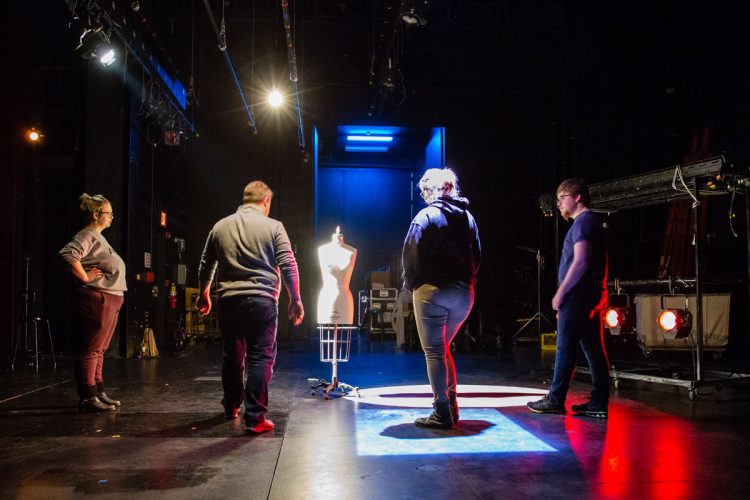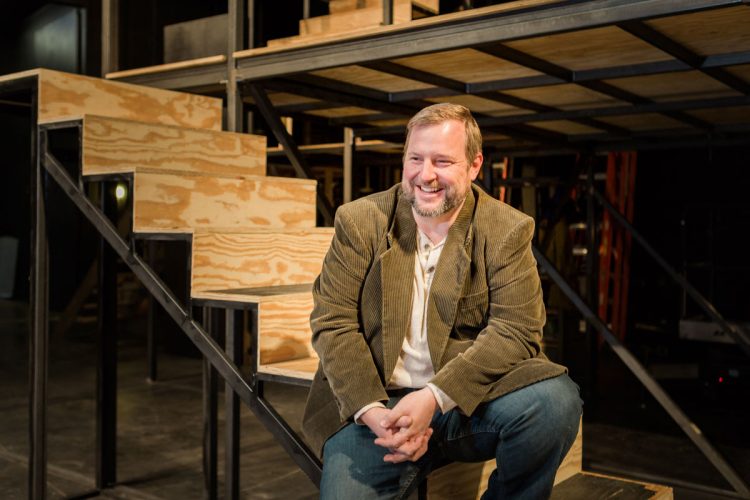One Course: Lighting Design
Professor of Theatre Scott Olinger approaches theatre with a show, don’t tell, philosophy.
 “We often say as artists that we have a responsibility to help audiences feel important things,” Olinger says. “We can present data on the effects of climate change, but most people will respond more directly to the story of a person affected directly by that change. It leads to one of the most important phrases we use: show, don’t tell. If we want our stories to have an impact on our audience, we have to study the ways that we tell the stories to maximize that impact.”
“We often say as artists that we have a responsibility to help audiences feel important things,” Olinger says. “We can present data on the effects of climate change, but most people will respond more directly to the story of a person affected directly by that change. It leads to one of the most important phrases we use: show, don’t tell. If we want our stories to have an impact on our audience, we have to study the ways that we tell the stories to maximize that impact.”
Olinger has been teaching Lighting Design for 20 years. Originally, the class was taught entirely with incandescent lights. Now, he teaches with LED lights.
“Light is crucial to nearly everything we do on a daily basis,” Olinger says. “It provides much more than simple visibility, and we react to it in fascinating physiological and psychological ways.”
Physiologically, when our eyes are exposed to narrow bands of the spectrum, like when a stage is lit only with red lights, they become fatigued as our minds try to correct the red to white. This can be used to heighten the tension of a scene.

Psychologically, dimming the lights can give the illusion that actors on stage are lowering the volume of their voices when they are not, which tends to encourage the audience to lean in physically or become more alert mentally in order to follow along.
Lighting Design encourages creativity. The students analyze scripts, poems, and music in order to make decisions about how they want the audience to experience the text. They consider which design elements—color, texture, timing, and intensity—will affect the audience, and then they test their hypothesis and get feedback.
Olinger has taken classes to Chicago for the day to speak to production managers, tour WGN Studios, and see a performance of “Wicked.” They’ve also traveled to Madison, Wisconsin, to the corporate headquarters for Electronic Theatre Controls, where Hans Hinrichsen ’10 teaches a master class on programming the board.



